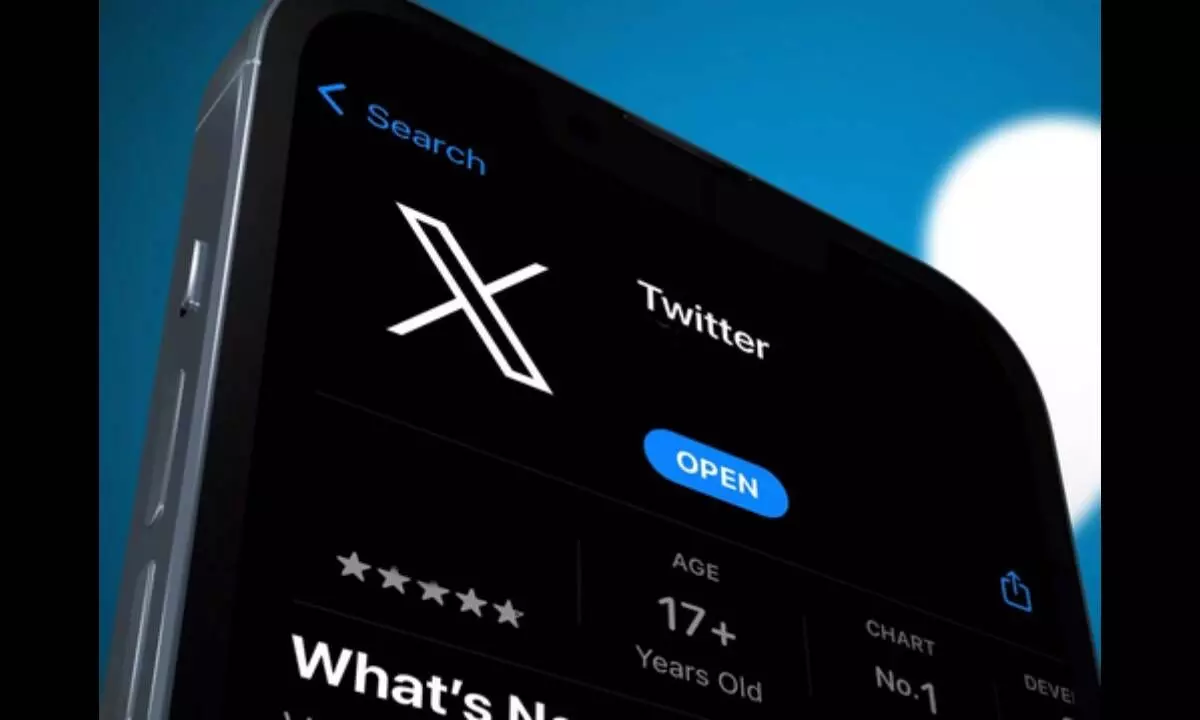New York Times Loses Verification Badge on Elon Musk's X Platform
The social media platform X, formerly known as Twitter, has made the decision to remove the gold "verified" badge from the New York Times' account, following a series of complaints directed at the news organization by X owner Elon Musk
image for illustrative purpose

The social media platform X, formerly known as Twitter, has made the decision to remove the gold "verified" badge from the New York Times' account, following a series of complaints directed at the news organization by X owner Elon Musk.
The "verified" badge served as the only visual identifier distinguishing the Times' 55-million-follower account from potential impostors, particularly during two significant global conflicts in Israel and Ukraine. X has been a host for a substantial amount of false information related to the Israel-Gaza war, some of which Elon Musk himself has publicly endorsed.
The sudden removal of the badge on Tuesday occurred without any prior notice, according to an insider. Notably, other reputable news organizations such as The Washington Post, the Wall Street Journal, the Associated Press, CNN, Bloomberg, Vox, and several others still retain their "verified" badges as of Thursday. Meanwhile, various Times-related accounts, covering topics like world news and health, still displayed their "verified" badges.
Following the publication of this article, the Times' main account was reinstated with a blue "verified" badge. However, a Times spokesperson expressed that X provided no information or explanation for these actions.
This latest move is an extension of Musk's endeavor to employ the social media platform he acquired, claiming to uphold free speech, as a means to undermine news organizations he holds grievances against. It also raises questions about Musk's adoption of secretive social media strategies, a practice he and conservative critics of Twitter once openly criticized.
Requests for comments directed to both X and Elon Musk went unanswered.
In April, shortly after Musk's acquisition of the company for $44 billion, X abolished its long-standing system of granting badges to politicians, journalists, and other public figures with verified identities. In its place, a paid model was introduced, providing blue badges to individuals who pay $8 per month and gold badges to "verified organizations" that contribute at least $1,000 each month.
The Times, having declined to pay the fee, became the first major account to lose verification, as Musk publicly advocated for its badge to be revoked. Subsequently, X reinstated the badge for the Times and other high-profile accounts, even those that refused to pay or expressed a lack of interest in the badge. Neither the Times nor The Washington Post has ever paid the verification fee, as per sources familiar with both organizations.
The change in the verification system has posed challenges for users seeking official and reliable information during significant news events. A study from the media-rating service NewsGuard revealed that 74% of the most egregious misinformation regarding the Israel-Gaza conflict on X was disseminated by blue "verified" accounts that were obtained through payment.
Musk has been relentless in his criticism of the Times, accusing the news organization of endorsing "calls for genocide" and suggesting it should be canceled. Subsequently, X introduced a five-second delay for clicks to the Times' website, which was later removed without explanation following coverage by The Washington Post.
Despite the removal of the delay, traffic to the Times' website from X links has seen a significant drop of approximately 50% since August, exceeding the general industry-wide slowdown in referrals to top news sites from both X and Facebook, according to data from analytics firm Similarweb.
Recently, Musk reinforced his criticism of the Times by echoing a comment from far-right influencer Ian Miles Cheong, who accused the Times of uncritically propagating false information. Musk's response to this criticism was, "Real journalists' lmaooo."
Notably, the New York Times holds the 25th most-followed account on X, according to data from the social media analytics firm Social Blade.
Since Musk's acquisition of X, the platform has witnessed a reduction in content moderation, suspension of journalists, reinstatement of neo-Nazis, and threats of defamation lawsuits against entities such as the Anti-Defamation League. Consequently, the platform has experienced a decline in users and advertisers.
In April, NPR became the first major news organization to cease using X after its account was labeled as "state-affiliated media." Over the past six months, NPR's website traffic has only decreased by 1%, as reported in an internal memo initially shared by Nieman Reports.

